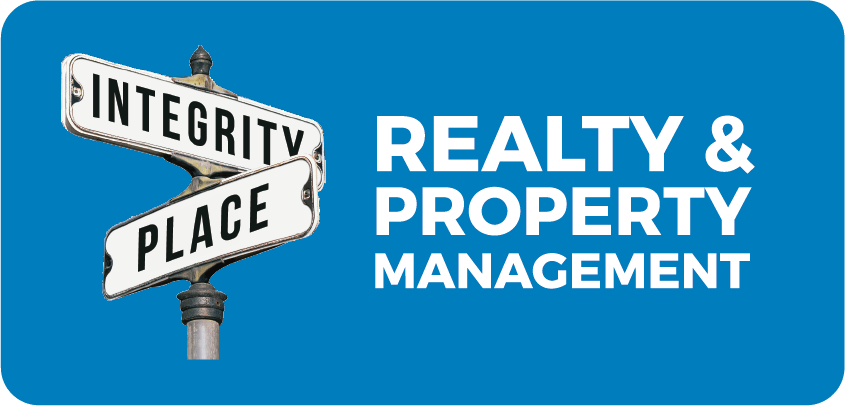How To Deal With Bad Property Management Company

Not all property managers deliver the professionalism and attention you expect. Dealing with a bad property manager can turn your rental investment from a dream into a nightmare. Instead of taking care of it as promised, they might neglect your property and miss out on crucial tenant issues, all of which can affect your ROI.
If you suspect your property manager is falling short of their promises, don't panic. In this guide, we'll walk you through how to recognize and deal with a bad property management company or individual manager.
How to Identify a Bad Property Manager: 10 Warning Signs
When dealing with property managers, it's important to spot warning signs that could cause problems later. While some issues only show up after you've signed a contract, there are red flags you can catch early on. If you notice any of these, it's time to either keep looking or protect yourself by documenting everything:
1. Poor Communication
A property manager who is slow to respond or isn’t responding to you and your tenants at all is a major red flag. Missed calls, delayed emails, or failure to address tenant concerns quickly can lead to unhappy tenants and higher vacancy rates.
2. Late Payments
You should always know when to expect rent payments and how much to receive. If a property manager consistently fails to deliver rent profit on time, it may indicate poor bookkeeping practices or financial mismanagement. In worst cases, some companies may use your rental income to cover their own expenses.
3. Hidden Fees
Before signing any agreements, transparently discuss all potential fees. Some companies advertise low-cost services only to charge extra for essentials like inspections, tenant communication, or lease renewals. If the pricing structure isn't transparent, that's a red flag.
4. Unrealistic Rental Estimates
Be wary of property managers who promise overly high rental yields without understanding the local market. Overpricing your property can lead to long vacancies and a loss of potential income. Trustworthy property managers provide realistic, market-driven pricing.
5. Quitting Without Informing You
If your property manager suddenly becomes less responsive or misses meetings without explanation, it could be a sign they are planning to quit. A property manager who leaves without notice can cause significant disruption to your property and tenant relations.
6. Inflexible Hours
Property management is not a typical 9–5 job. Emergencies can happen at any time, and a good property manager should be available to handle after-hours maintenance requests or urgent situations. If their hours are rigid, it could lead to unresolved tenant issues.
7. High Vacancy Rates
If your property has been empty for long periods, it may be because your property manager is failing to market it effectively. A prolonged vacancy period suggests poor advertising, high rent prices, or neglecting tenant relations.
8. Frequent Evictions
If tenants are frequently being evicted, it may be a sign that your property manager is not properly vetting tenants. A good property manager will thoroughly screen applicants to avoid the costly and time-consuming eviction process.
9. Lack of Inspection Reports
Regular inspections are essential to ensure that your property is well-maintained and that tenants adhere to the lease. If your property manager doesn't provide routine inspection reports, you could be in for unpleasant surprises when tenants move out.
10. Ignorance of Fair Housing Regulations
A property manager unaware of local, state, or federal housing laws is a liability. These regulations are crucial to avoiding legal issues and ensuring that tenant rights are respected. Any disregard for these laws is a major red flag that could result in legal trouble for you.
How to Deal with a Bad Property Manager
Dealing with a bad property manager can be stressful, but there are ways to handle it. Here are some simple steps to follow:
Open Communication
Are you wondering what to do when your property manager ignores you? Start by having an honest conversation. Tell your property manager about your concerns and what you expect to change. Sometimes, just addressing the problem head-on can fix minor concerns.
Document Everything
Keep a record of all communication—emails, texts, photos of the property, repair requests, and any paperwork. This documentation will be helpful if you need to take further action.
File a Complaint
If communication fails, you can file a formal complaint with agencies like the Department of Housing and Urban Development (HUD) or the Better Business Bureau (BBB). Detailed records of the manager's failure to perform can strengthen your case.
Switch Property Management Companies
What do you do if your property manager isn't responding after you’ve communicated your frustration to them? Well, it might be time to switch companies. While your current experience may be negative, many other firms can provide professional and reliable services. List the pros and cons of your current company before making the final decision.
How to Fire Your Property Manager in 5 Simple Steps
If it's time to part ways with your property manager, here's how to handle it smoothly and professionally:
- Review Your Contract: Before anything else, check your management contract. Look for cancellation policies, notice periods, and any fees for ending the agreement. This will tell you how to move forward legally.
- Gather Evidence of Issues: If your property manager isn't doing their job, collect any records of contract breaches or tenant complaints. This documentation can help you prove a lack of performance and avoid penalties.
- Send a Written Notice: Provide official written notice that you're ending the contract. Make sure it's done according to the terms in your agreement, with proper notice and required signatures.
- Decide on the Next Steps: Next, you need to figure out what happens next. Are you going to manage the property yourself or hire a new management company? Think carefully about what's best for your property.
- Inform Your Tenants: Lastly, notify your tenants about the change. Let them know who will be managing the property moving forward and where they should direct any questions or payments.
7 Top Tips for Finding a New Property Manager
If you’ve decided to stop dealing with a bad property management company, it's time to find a new one that meets your needs. Here are some tips to help you choose the right property manager.
1. Do Your Research
In this digital age, information is easily accessible. Start by looking for property management companies in your area. Check their services, such as tenant screening and rent collection. Look at their reviews, industry experience, fee structure, and past clients. Thorough research will help you find a reputable and trustworthy company.
2. Interview Multiple Managers
Don't settle on the first company you hear good things about. Interview several property managers to get a clear picture of what they offer. Ask detailed questions to understand their approach and services. The more questions you ask, the better you can gauge if they meet your expectations.
3. Request References
Ask for references from current or past clients. A reputable property manager should have no problem providing referrals. Hearing about other clients' experiences can give you valuable insights into their reliability and performance.
4. Ensure They're Licensed
Only consider licensed property management companies. This is crucial for ensuring you work with a legitimate and professional company. Licensed property managers are better equipped to handle problems and follow legal protocols, saving you time and money.
5. Use a Screening Process
Treat finding a new property manager like screening a tenant. Get referrals from trusted sources like investor groups, real estate agents, and title companies. Check online listings on sites like Zillow, Realtor.com, Yelp, and Facebook. Meet with potential managers to discuss their business, staff, and experience.
6. Verify Credentials and Memberships
Check with the State Department of Real Estate to ensure the property manager's broker license is active and free of complaints. Also, find out if they belong to professional associations like the Institute of Real Estate Management or the National Association of Residential Property Managers.
7. Review Their Contract
Examine the property management agreement carefully. Ensure that the responsibilities are clearly defined, that you can terminate the contract without penalties, that fees are reasonable, and that the company carries liability insurance.
Turning Challenges Into Success: Choosing the Right Property Manager
Dealing with a bad property management company can be challenging—but taking proactive steps can make a significant difference. By recognizing the signs early, addressing issues directly, and carefully selecting a new manager, you can turn your rental property management experience around.
Remember, the right property manager safeguards your investment and ensures smooth operations and tenant satisfaction. With the right approach, you can restore peace of mind and set your property up for success.
Ready to experience hassle-free property management with a team you can trust? Located in
Utah, Integrity Place Realty and Property Management prioritizes your investment and peace of mind. Let us handle the hard work while you enjoy the benefits.
Contact us today to learn how we can help you take control of your property and maximize its potential!










